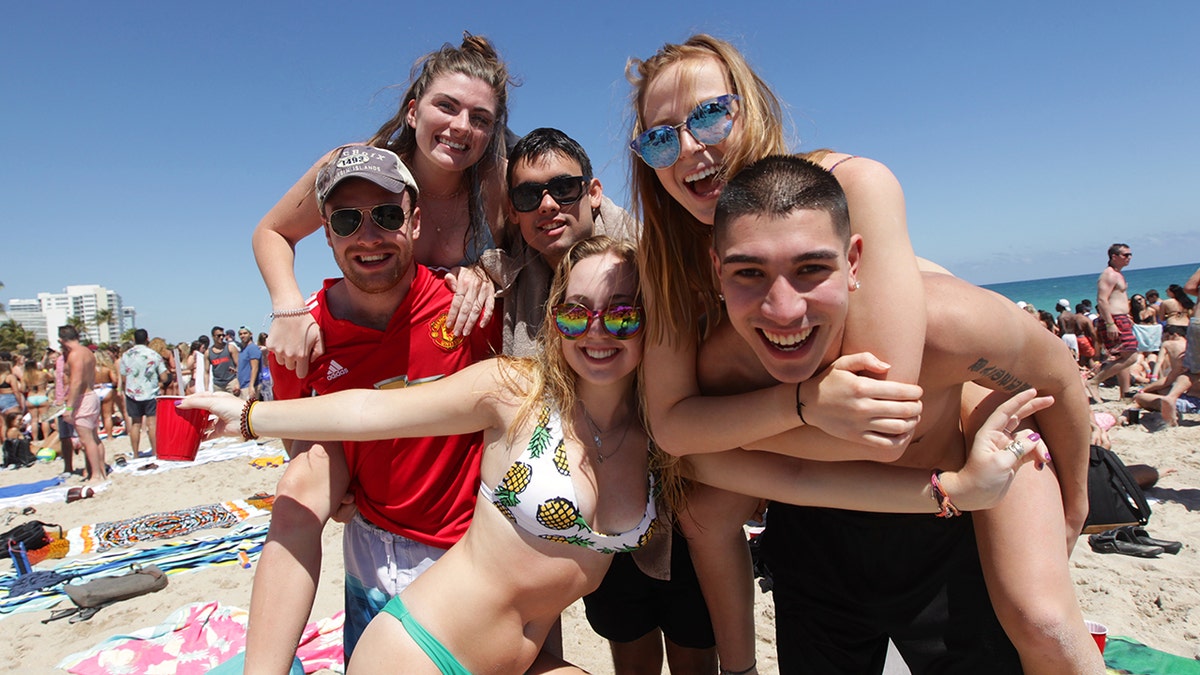Fox News Flash top headlines for March 5
Fox News Flash top headlines are here. Check out what's clicking on Foxnews.com.
Nary a face mask was to be found this week as college students flocked to Fort Lauderdale, Fla., a traditional hotspot for the annual Spring Break ritual of beer, bikinis and boisterous behavior.
"Florida hasn’t skipped a beat," Michigan resident Jack Gumeinny, 21, told the Sun Sentinel of South Florida as he surveyed the sunny scene along the city’s famous Strip.
He last visited two years ago but returned "to see what it’s like now with COVID," he told the newspaper.
The Davenport University junior wasn’t fazed by a lack of social distancing among his fellow revelers.
"We’re not in the at-risk group," he said.
COVID HIGHLIGHTS COLLEGE GRADS' REGRET OF SCHOOL CHOICES DUE TO HIGH TUITION COSTS, DEBT: ANALYSIS
Further south, more party people were gathering in Miami Beach, which is making a Spring Break comeback this year after ending the party early in 2020, according to the Miami Herald.
"I feel like I needed a break," Ohio resident Akilah Cooper, 29, told the Herald as she soaked up the sunshine in a red bikini after flying south for a visit.

Spring Break makes a return. (Fox News)
"I’ve been mentally stressed out just being in the house, not being able to do anything," she added, voicing a common frustration among Americans who’ve been cooped up in their homes for much of the past year.
Many business owners and local leaders are happy to see crowds return to Florida’s beaches – but some uneasiness continues to linger because the outbreak is far from over.
"With crowding, particularly within bars and without masks, there is a high risk that visitors will acquire the infection and take it back home," warned Dr. J. Glenn Morris Jr., director of the Emerging Pathogens Institute at the University of Florida.
"With crowding, particularly within bars and without masks, there is a high risk that visitors will acquire the infection and take it back home."
The Sunshine State "has among the highest rate of variant strains" of the virus, he told the Herald.
In Fort Lauderdale, Mayor Dean Trantalis told the Sun Sentinel that most beachfront businesses in the city were pretty good about complying with mitigation measures. He suggested that reports of recklessness amid the pandemic were largely overblown.
"People will always find random evidence of non-compliance and make it appear that’s the norm," he said. "Most people are aware of the rules and obey the rules. We have beaches and open-air environments, and open-air environments are not considered to be putting people at risk. I think people should spend more time focusing than trying to play gotcha with other people visiting our community."
But local resident Chad McCoury told the Sun Sentinel he was bothered by what he viewed as a casual disregard for safety.
CLICK HERE FOR COMPLETE CORONAVIRUS COVERAGE
"They did not have masks on," he said about partiers in one beachside cafe. "It looked like a dance club. I was just like, ‘Oh my gosh, we’re just in week one. I hope this is not how it’s going to be."
As of early Saturday, Miami-Dade County ranked fourth in the nation in confirmed coronavirus cases since the outbreak began, with more than 417,000 people sickened, while Broward County – home to Fort Lauderdale – ranked 15th with nearly 200,000 confirmed cases, according to Johns Hopkins University.
Miami-Dade ranked seventh in deaths, with more than 5,500, while Broward was not in the top 25, according to the university.









































